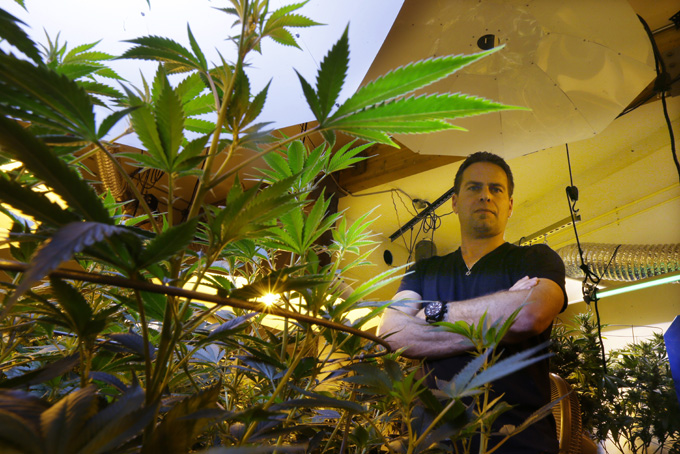
This Aug. 17, 1969 black-and-white file photo shows music fans seeking shelter is a grass hut at the Woodstock Music and Art Festival in Bethel, N.Y. where the sign above reads “Have a Marijuana.” (AP Photo, File)
by Alicia A. Caldwell and Nancy Benac
WASHINGTON (AP) — It took 50 years for American attitudes about marijuana to zigzag from the paranoia of “Reefer Madness” to the excesses of Woodstock back to the hard line of “Just Say No.”
The next 25 years took the nation from Bill Clinton, who famously “didn’t inhale,” to Barack Obama, who most emphatically did.
And now, in just a few short years, public opinion has moved so dramatically toward general acceptance that even those who champion legalization are surprised at how quickly attitudes are changing and states are moving to approve the drug — for medical use and just for fun.
It is a moment in America that is rife with contradictions:
—People are looking more kindly on marijuana even as science reveals more about the drug’s potential dangers, particularly for young people.
—States are giving the green light to the drug in direct defiance of a federal prohibition on its use.
—Exploration of the potential medical benefit is limited by high federal hurdles to research.
Washington policymakers seem reluctant to deal with any of it.

Brent Miller posess for a photo in one of the grow rooms of his medical marijuana grow operation in Seattle. (AP Photo/Ted S. Warren, File)
Richard Bonnie, a University of Virginia law professor who worked for a national commission that recommended decriminalizing marijuana in 1972, sees the public taking a big leap from prohibition to a more laissez-faire approach without full deliberation.
“It’s a remarkable story historically,” he says. “But as a matter of public policy, it’s a little worrisome. It’s intriguing, it’s interesting, it’s good that liberalization is occurring, but it is a little worrisome.”
More than a little worrisome to those in the anti-drug movement.
“We’re on this hundred-mile-an-hour freight train to legalizing a third addictive substance,” says Kevin Sabet, a former drug policy adviser in the Obama administration, lumping marijuana with tobacco and alcohol.
Legalization strategist Ethan Nadelmann, executive director of the Drug Policy Alliance, likes the direction the marijuana smoke is wafting. But he knows his side has considerable work yet to do.
“I’m constantly reminding my allies that marijuana is not going to legalize itself,” he says.